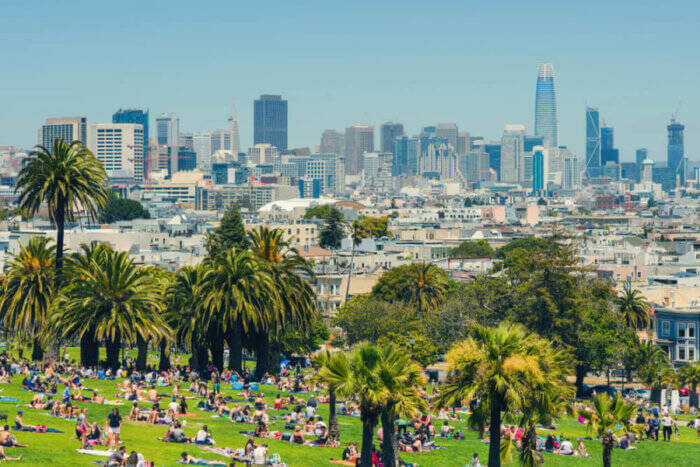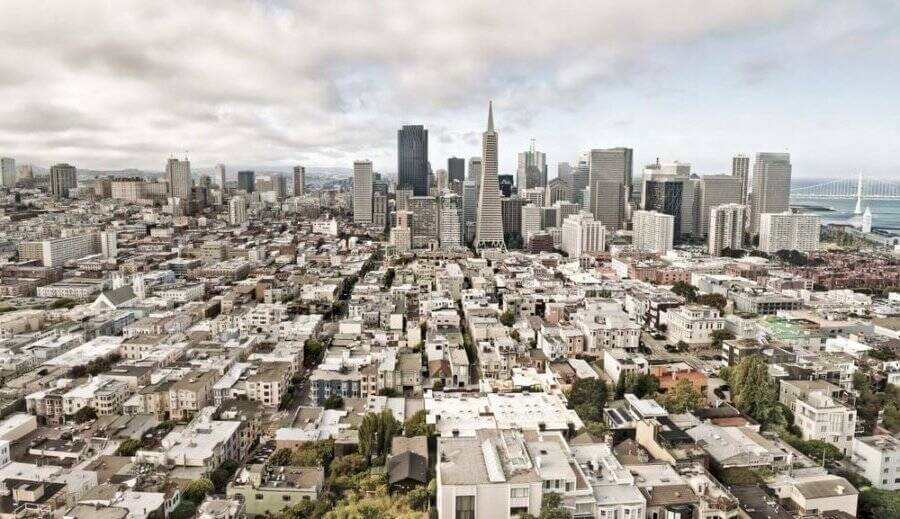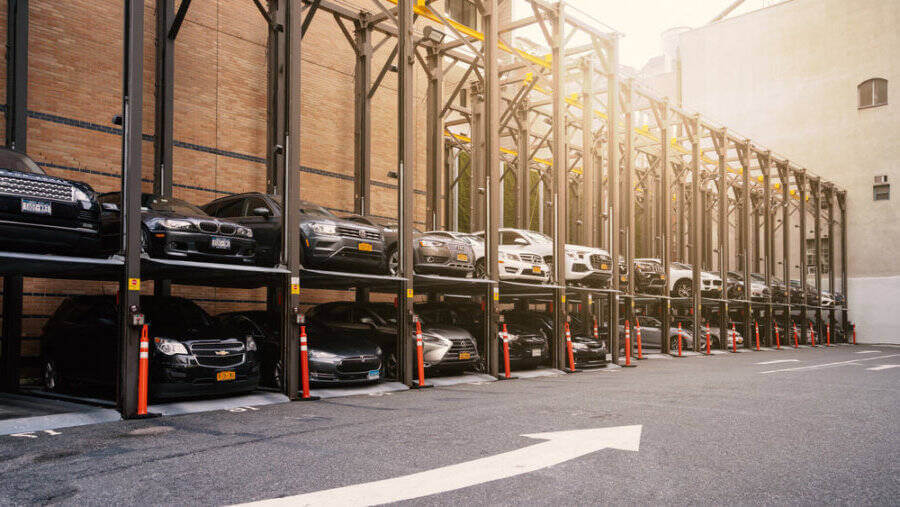Thinking about moving to a big city? If you’re living in a town (or even a small city) it can feel like an exciting and overwhelming idea. If you’re imagining a vibrant place with lots of activity, people, variety, and events – you’re on the right track! But have you considered some of the cons of living in a big city?
We don’t want to turn you away from the big city life! It’s important, though, to consider all of the upsides and downsides to ensure you know what to expect. Arriving with rose-colored glasses can be great but if you’re not prepared for a higher cost of living or circling the block to find a parking spot, you might end up questioning your choice.
Let’s have a look at the pros and cons of moving to a big city so you can make the right decision for yourself.
Pros
Lots of People
Big cities are full and vibrant places, due in part to the large number of people who are drawn there. Not only is it a city full of many people but you’ll find many types of people from all over the world.
Cultural diversity means you’ll be exposed to a variety of people, perspectives, backgrounds, and ideas. More than that, you’ll also see new faces every day. You don’t get that in small towns.
Sure, it can be overwhelming sometimes for there to be a mass of people in your city with you, particularly if you come from a small, quiet, or close-knit place. But it can be refreshing to see and meet new people with different life experiences than you.
Variety of Activities
Small towns have their charm but they also have predictability. If you’ve been living in your town for some time now, you’ve likely experienced all of the activities on offer. At least, all of the ones that interest you.
Cities are different. There are a ton of activities to check out, including many you likely won’t find where you’re living now. You can try new things and see what appeals to you and the reality is, that there’s always something. This volume of available things means you’ll be able to meet people more easily, too, as activities are a great place to connect with new locals and build your friend group.
The reality is, that there’s something for everyone. Night owls, early birds, those on a 9-5 schedule, freelance or shift workers, foodies, art lovers, fitness buffs, music aficionados… you’ll find something for you in a big city. And who knows, you may learn you like some things more than you expect!
Public Transportation
Small towns often mean driving from one place to another which can get a bit old. Even if the traffic is less hectic where you live, it’s still a bit of a chore to need to pile yourself into the car every time you need to go anywhere. And if your car breaks down? You likely have limited options to get around.
Big cities have public transportation covered so you can avoid the hassle of driving, traffic, and searching (and paying) for parking. You can even use your commutes for things like reading or listening to podcasts.
It’s not only buses, trains, or the subway you have to count on, either. Taxis and ride-sharing apps are abundant so you can easily get a lift from point a to point b without taking your car.
Events
Living in a small town and missing out on your favorite concerts? Ditch the event envy and head to a big city, where most of your favorites will come and put on a show to remember. You won’t have to plan an entire weekend around traveling to the closest venue and forking out a ton of money in the process. Big cities get big events and they’re right there in your neighborhood!
Not limited to concerts, you’ll also have sporting events, festivals, and art openings to choose from.
Higher Salaries
Sure, cities have a higher cost of living, but that also means the wages are higher than in small towns. There’s a trend amongst people living in nearby suburbs commuting into the big cities for bigger roles (and bigger salaries), and that’s for good reason. Of course, if you don’t want to spend hours of your day traveling to and from work, skip the suburbs and go for the big city life. Or, negotiate for a remote or hybrid role so you can get the best of both worlds.
Free Stuff to Do
Cities are abundant with all sorts of things and while concerts and festivals may be a bit pricey due to overhead, there is also plenty to do that is free or cheap. Head to the park, wander around window shopping, visit museums on free admission days, or simply take in the sights and sounds of a city neighborhood.
You’ll likely also find things like open mic nights, poetry readings at bookstores, and other small events that are available free. Who knows, maybe you’ll even end up hosting something yourself for a new group of friends!
Cons
Cost of Living
The higher cost of living is what most people consider the main disadvantage to living in a big city, and it’s a reasonable one to consider. Major cities like San Francisco and New York, for example, have the highest costs in the US.
We’re not just talking about rents. The average cost of things you’re buying in your town now will be more expensive in the city and that includes food, drinks, gasoline, tobacco products, and others. Depending on where you live you’ll likely also encounter costs you don’t currently have, such as parking permits and laundry facilities. Do some research beforehand to make sure your new city fits your budget.
Noise
We covered all of the upsides to things like more people, more events, and more public transport, but those things have a downside as well: the noise.
Big cities are inherently noisier with abundant people and things happening at any given time. Moving to New York City? Choose your neighborhood carefully – you’ll likely hear something 24 hours a day.
There are some cities with more quiet neighborhoods, so do your research and find a quieter spot. When in doubt remember: if you can’t beat ‘em, join ‘em!
It Can feel Cramped
Moving from the suburbs into the big city has another bit of culture shock: the lack of space. If you’re used to having a backyard, wide sidewalks, or passing wide open spaces as you travel from place to place, living in a city will take some getting used to.
In major cities, most people live in apartments. Because of the need for space-saving in the city, you’ll find apartments that can be pretty small. You may get lucky and find an apartment with a small courtyard but don’t count on finding a yard or a patio as part of the deal.
If you want to live in a house in a big city, it’s possible – but it will cost you. It’s best to come to terms with sharing walls with your neighbors, at least, to start.
Lack of Parking
Moving to a city but want to keep the freedom of having your car? Be prepared for a bit of a battle on the street.
Parking space is limited in significant cities and is not guaranteed, even if you have an address in the neighborhood. Many residential streets are by permit only which means you’ll need to buy one for yourself to park there. Even then, you may not have a space.
Streets with free parking are well-known (and sought after) and fill up fast. If you find an apartment building that has dedicated parking, you can bet it will add a significant cost to your rent. Most businesses don’t have dedicated parking either, which means you may have to park blocks away and walk in.
Higher Premiums
If you do decide to keep your car even with all of the parking burdens to consider, you’ll also have to factor in higher costs. More people means more crime, unfortunately, which drives up insurance premiums for owning a car. Factors such as higher theft, damage, burglaries, and vandalism mean insurance companies will charge more. Do your research and get an insurance estimate so you understand what your new costs will be.




